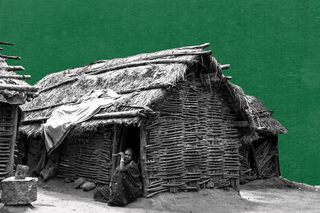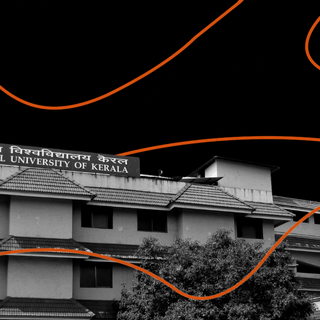
Govt Delay Strands 400 Tribal Families Awaiting Re‑Settlement in Karnataka
The promise of re-settlement and relief packages were some reasons why tribals living in the Nagarahole forest area volunteered to move out.

The Nagarahole tiger reserve in Karnataka is a 600 sq kilometers expanse of verdant forest cover. It is also home to tribal groups in the region. In the last 40 years, the government has encouraged families to relocate from the protected area by promising rehabilitation and compensation. The picture remains bleak as those willing to shift base are waiting to be resettled.
“As of now, there are still 350-400 families that are waiting to be re-settled. This needs to be done keeping in mind the ecological impact of having human habitation in core forest areas as well as keeping in mind aspirations of those 350 families who are demanding resettlement to join the mainstream society,” reads a letter sent to Bhupinder Yadav, Union Minister for Environment and Labor. The National Tiger Conservation Authority has reportedly directed the state government to expedite the process.
Within the Nagarahole national park, the tribal groups include Jenukuruba and Bettakuruba, Yerawas, and Soligas. “The park has been a contested area since its inception, and the tribals living within its limits have a very long history of struggle,” Environmental Justice Atlas noted.
The primary reasons for rehabilitation are twofold: one is the growing instances of clashes with animals due to depleting green cover (581 people have faced injuries while 145 people died in the last five years due to clashes, according to data), and two, the denial of basic facilities such as healthcare, road connectivity, and education. This is further amplified by the prospect of compensation in the form of the Compensatory Afforestation Fund Management and Planning Authority (CAMPA) fund. Each family is expected to get facilities and benefits worth Rs. 15 lakhs.
The process to expedite resettlement also suffers from mismanagement of funds. Almost Rs. 1,300 crore is allocated to Karnataka for voluntary rehabilitation use. However, these are not being used adequately in Karnataka, along with Telangana and Andhra Pradesh. “This is despite the fact that the voluntary resettlement process is part of the official policy of the central government aimed to deliver genuine social justice to people marooned inside Tiger Reserves and Protected Areas,” Siddharth Goenka, a member of the Karnataka State Wildlife Board, told The Indian Express. Between 2015-16, out of the 10,898 families being considered for rehabilitation, only 684 were rehabilitated, according to official data.
The question of displacement looms large over residents in the protected area. For the families willing to relocate, continued survival in Nagarahole proves to be a challenge. The Wildlife Protection Act (WLPA) 1972 imposed restrictions on means of livelihood inside the forest area, denying traditional community rights to access forest resources. Tribal groups are further vulnerable to harassment by forest officials; people living in Nagarahole have also been called “encroachment threats.”
Related on The Swaddle:
Tribal Community in Madhya Pradesh Evicted From Homes Without Official Notice
The government has urged tribals to move out of the protected land with the promise of compensation. The process started in 1998. So far, only 812 families have been relocated and most are yet to receive the promised compensation.
The government has failed to deliver a house, agricultural land, drinking water, among other facilities, P.K. Ramu, a tribal leader from Hunsur, told The Times of India. Even the houses constructed between 2011 and 2020 in Shettihalli, Hebbale, among other regions, are marred by poor facilities. In 2019, an NGO wrote to the Prime Minister demanding urgent rehabilitation.
A three-member committee, appointed by the Karnataka High Court and headed by Muzaffar Assadi, a professor at the University of Mysore, recommended land and benefits that should be offered to the tribals. They recommended a “choice/option-based” relocation, urging the government to evaluate relocation through the lens of poverty, employment, and by respecting the cultural connection and knowledge of the tribals.
The resettlement of tribals is voluntary in some cases and forced in others. Even those willing to relocate are compelled by government restrictions. “Today, the majority of these tribal communities displaced continue to be landless laborers,” Environmental Justice Atlas added. Under the guise of “voluntary” displacement, groups continue to be dispossessed and displaced.
“It looks like our Forest Goddess is punishing us for deserting her. I lost three of my family members in quick succession. My children who worked as laborers had no jobs during the lockdown and we had to starve,” Soudamma, who was among the 42 families relocated from Bogepura Haadi national park, said.
The Karnataka government has recently announced plans to expedite the process; this sets a precedent for others. 3,000 other families are waiting to be rehabilitated from five other tiger reserves — Male Mahadeshwara, Bandipur and Biligiri Rangaswamy Temple in Chamarajanagar district, Bhadra in Chikkamagaluru, and Shivamogga and Dandeli.
If done right, rehabilitation can help tribal families, and also boost forest conservation. However, the operation now marred by government disinterest, lack of funds (and poor management of existing ones), and a general disregard for tribal concerns threatens this process.
“This effort [if achieved] will be a landmark achievement in delivering social justice to tribal people while ensuring consolidation of critical wildlife habitats,” Goenka noted.
Saumya Kalia is an Associate Editor at The Swaddle. Her journalism and writing explore issues of social justice, digital sub-cultures, media ecosystem, literature, and memory as they cut across socio-cultural periods. You can reach her at @Saumya_Kalia.
Related


Faculty Faces Gag on “Anti‑National” Lectures in Kerala University
